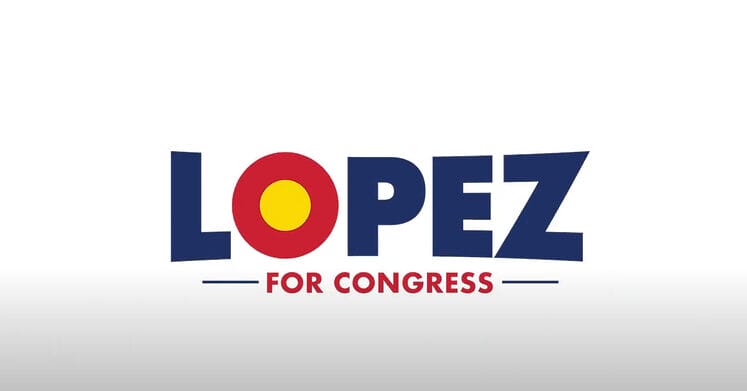We have received our ballots in the mailbox. A quick glance makes one wonder why there are so many questions pertaining to taxes, whether it be the state, county or local jurisdiction looking for additional money from the taxpayer. We know that our Politicians, Bureaucrats and Interested Parties, also known as PBIs, want to spend more on programs and therefore more of our money. We also know from running our own households that we have to stay within our budget, and the best place to look for savings is to uncover wasteful and damaging spending.
One place to center our attention on and hold PBIs accountable regarding state expenditures is to focus our attention on “corporate welfare.” You will not hear the phrase “corporate welfare,” but you will hear about policies enacted to enable “economic development.” Corporate welfare comes in many forms from the state or local government: grants, investment tax credits, job training tax credits, new employee tax credits, early-stage capital and retention grant, and tax incremental financing (TIF’s), to name a few.
Corporate welfare is defined in the study, Multilateral Disarmament: A State Compact to End Corporate Welfare, published by the Mackinac Center:
Corporate welfare is any financial benefit purposely granted by government to a specific business or class of businesses and that is not generally available to all businesses and taxpayers. Corporate welfare either lowers the costs of doing business or increases revenue for a business without its customers providing the revenue, relative to other similarly situated businesses, broadly speaking. It might even have both these effects. In short, corporate welfare increases the profitability of a select business or a select class of businesses through government action at the cost of other taxpayers.
The last phrase, “at the cost of other taxpayers,” should set off an alarm. If a corporation is receiving a subsidy/subsidies, someone has to make up that difference, and that someone is you. The benefits that businesses accumulate under the disguise of corporate welfare comes at the expenses of taxpayers, families, and other businesses, including competitors of the corporation receiving assistance. Additionally, subsidies interfere with the American spirit of entrepreneurship and innovation as the government picks winners and losers.
In their testimony to a U.S. House Hearing in 2012, Chris Edwards and Tad DeHaven, spoke in regards to Corporate Welfare Spending vs. the Entrepreneurial Economy. Another factor of corporate welfare is that it generates corruption.
The creation of corporate welfare programs has spawned an expanding web of lobby groups that demand ever more favors from policymakers. The more that the government intervenes in the economy, the more lobbying activity is generated, and the more new subsidy programs get created. It’s a vicious cycle. Corporate welfare doesn’t just create direct economic harm, it also erodes support for America’s free enterprise system. Businesses that become hooked on subsidies become tools of the state. They lose their independence, and they may focus more on gaining special benefits from Washington (and I’ll insert Colorado) than making good products. The more special breaks that businesses receive, the less willing they are to speak out against the expansion of big government.
While some people think that corporations lobby to slash government, they mainly do the opposite. Businesses often lobby in favor of federal intervention if it will benefit them and hurt their competitors.
In my last article, The Colorado Office of Economic Development’s Policy of Corporate Welfare, Colorado Enterprise Zones were discussed in regards to corporate welfare. This article will discuss Tax Incremental Financing, also known as TIFs. Good Jobs First describes TIFs:
Tax increment financing, or TIF, subsidizes companies by refunding or diverting a portion of their taxes to help finance development in an area or (less frequently) on a project site.
Usually, TIF helps to pay for infrastructure improvements (streets, sewers, parking lots) in the area near a new development. In some states, TIF can also be used for acquiring land (including eminent domain), paying for planning expenses (legal fees, studies, engineering, etc.), demolishing and rehabbing buildings, cleaning up contaminated areas (“brownfields”), or funding job training programs. Some states allow TIF to directly subsidize private development expenses.
Unbeknownst to many of us, TIFs have been generously handed out in the billions of dollars over the years in the state of Colorado. Good Jobs First tracks these assistance packages to corporations. The top 25 for the state of Colorado are as follows:
[table id=1 /]
The total of the top 25 assisted TIFs in Colorado is $1,035,134,000. Yes, over $1 billion in corporate subsidies that span up to 25 years. Remember, this is just 25 corporations involved in just one “corporate welfare” program. (Note: A megadeal is defined as a subsidy package involving multiple state and local entities; and local/Denver subsidies are administered through the Denver Urban Renewal Authority.)
The chart clearly shows that Denver is heavily involved in the generous use of TIFs. On the website for the Denver Urban Renewal Authority, the entity that gives out these large funds of assistance to corporations, explains TIFs in the section titled Citizens Guide to Urban Renewal:
Under this financing mechanism, the existing level of property and/or sales tax collections in a project area is set as a base, and an estimate is determined for the new future level of tax revenues expected to be generated. The difference between the base and the expected level of increased taxes collected as a result of the redevelopment project constitute the “tax increment.” The base continues to be paid to the existing taxing entities, while the increment is used for a specified period of time to pay off the bonds or to reimburse the developer. Once the incremental taxes generated have paid for the gap in financing, typically over a period of not more than 25 years, the local taxing entities have new, permanent sources of revenue that would not have existed if the project had not been undertaken.
The explanation continues …
Taxing entities such as Denver Public Schools and special districts continue to receive all the tax revenues they were receiving the year a redevelopment project was begun (the base year). Over the long term, they benefit from the redevelopment project and the tax increment financing process because once DURA’s financial obligation has been repaid they begin to receive all the tax increment created by the redevelopment that DURA had been using to repay bonds or to reimburse development costs.
While there is no increase in tax rate in an urban renewal project, increased property values do often result in increased property tax revenue.
When we put this in the context of our state’s constitution, we have to ask, how can our state government be transferring taxpayer’s funds to corporations? Do the special interests of corporations supersede the Colorado state constitution? Article XI Section 2 clearly states that public aid cannot be given to corporate entities except for development of energy:
Section 2. No aid to corporations – no joint ownership by state, county, city, town, or school district. Neither the state, nor any county, city, town, township, or school district shall make any donation or grant to, or in aid of, or become a subscriber to, or shareholder in any corporation or company or a joint owner with any person, company, or corporation, public or private, in or out of the state, except as to such ownership as may accrue to the state by escheat, or by forfeiture, by operation or provision of law; and except as to such ownership as may accrue to the state, or to any county, city, town, township, or school district, or to either or any of them, jointly with any person, company, or corporation, by forfeiture or sale of real estate for nonpayment of taxes, or by -165- 2018 donation or devise for public use, or by purchase by or on behalf of any or either of them, jointly with any or either of them, under execution in cases of fines, penalties, or forfeiture of recognizance, breach of condition of official bond, or of bond to secure public moneys, or the performance of any contract in which they or any of them may be jointly or severally interested. Nothing in this section shall be construed to prohibit any city or town from becoming a subscriber or shareholder in any corporation or company, public or private, or a joint owner with any person, company, or corporation, public or private, in order to effect the development of energy resources after discovery, or production, transportation, or transmission of energy in whole or in part for the benefit of the inhabitants of such city or town.
PBIs tell us the utilization of “corporate welfare” will help attract new corporations or keep/expand existing corporations in the state. This is not the role of government. The government cannot be trusted with having a hand in private industry regarding the production of goods and services. Instead, PBIs should support the hard-working families and all businesses throughout the state of Colorado by reducing the burden of regulations, and implementing tax rates applicable to all without favoritism and benefits everyone.
You have your ballot. Do not be deceived by the language of the questions. “NO” on any and every question that has the word “tax” in it. The PBIs need to eliminate wasteful spending before asking you to contribute your hard-earned dollar.









Responses